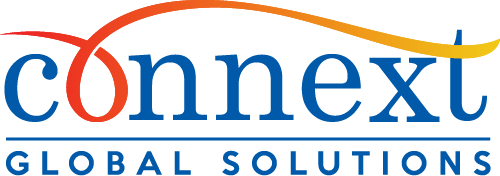5 key benefits of outsourcing transcription services for healthcare providers

The world of healthcare is fast-paced and documentation-heavy. Accurate and timely transcription plays a critical role in these operations.
Healthcare providers rely on precise records to ensure that patients receive proper care, physicians stay informed, and the medical staff can work efficiently.
However, managing transcription in-house can be resource-intensive, especially as patient volumes increase. This is where outsourcing transcription services becomes a valuable solution.
Why do healthcare providers need transcription services?
Healthcare providers, including hospitals, clinics, and private practices, handle vast amounts of patient information daily. Each interaction between a patient and a healthcare professional generates data that needs to be recorded for future reference.
These records may include patient histories, clinical notes, diagnostic reports, and other vital information. Accuracy in these documents is critical because even a minor error can lead to incorrect diagnoses or treatments.
Healthcare transcription services involve converting voice-recorded medical reports into written text.
Doctors, nurses, and other professionals use dictation to save time, but this data needs to be transcribed and entered into patient records or Electronic Health Records (EHR) systems.

Traditionally, transcription has been managed in-house. However, with the rising complexity and demand for speed and accuracy, many healthcare providers are opting to outsource this function.5 benefits of outsourcing transcription services
Outsourcing transcription services offers healthcare providers several advantages that can significantly improve their operational efficiency and patient care quality.
1. Improved accuracy and quality
Outsourcing transcription services provides access to highly trained professionals who specialize in medical transcription.
These experts are familiar with the terminologies, procedures, and industry regulations that must be followed to ensure the highest level of accuracy. In-house transcriptionists may lack the same specialized skills, leading to increased risks of errors.
Outsourced providers also have quality control processes in place to double-check transcriptions, reducing the likelihood of mistakes for a better patient experience.
2. Cost efficiency
Managing transcription in-house involves significant overhead costs, including hiring, training, and maintaining transcription staff.
In addition, the need for advanced transcription software and hardware can further inflate expenses.
Outsourcing transcription eliminates the need for such investments, as healthcare providers only pay for the services they use. This pay-per-service model also allows for better budget management, particularly for smaller practices.
3. Faster turnaround times
Outsourced transcription services typically operate on a 24/7 basis. This ensures that healthcare providers receive their documents quickly, even outside normal working hours.
This is particularly useful in high-pressure medical environments where timely access to patient records is crucial.
With dedicated teams working around the clock, outsourced providers can handle large volumes of transcription without delays. Medical professionals can instead focus on patient care.
4. Compliance with data security regulations
SonicWall reported 14 million victims of healthcare data breaches in 2024, highlighting the vulnerability of this sector.
Privacy and security regulations must be strictly followed when handling sensitive patient data.
Most frequently cited are the Health Insurance Portability and Accountability Act (HIPAA) in the United States and the General Data Protection Regulation (GDPR) in Europe.
Outsourcing transcription providers comes with advanced security measures. These include encrypted file transfers and secure servers to ensure that patient information is handled safely.
By outsourcing transcription, healthcare providers can rest assured that their data is compliant with all relevant regulations.
5. Access to advanced technology
Outsourcing companies often use cutting-edge technology, including AI-powered transcription tools and speech recognition software, to enhance speed and accuracy.
These tools allow seamless integration with EHR systems, improving healthcare providers’ workflows. In contrast, implementing and maintaining such technologies in-house can be costly and complex.

Connext’s healthcare outsourcing solutions
Outsourcing transcription to a trusted partner like Connext can be a game-changer. It offers specialized transcription services tailored to the unique needs of healthcare organizations.
This BPO handles a team of expert transcriptionists, secure data handling protocols, and scalable solutions. It ensures that healthcare providers can focus on delivering quality care while leaving transcription to the professionals.
Connext’s expertise and commitment to quality make it a valuable partner for any healthcare provider.
Get in touch with Connext to learn more about its healthcare outsourcing services!







 Independent
Independent




